Designing a custom home is an exciting opportunity to create a living space that perfectly aligns with your lifestyle, preferences, and needs. This process involves numerous decisions and considerations, each playing a crucial role in the final outcome. Understanding and prioritizing these factors can help ensure that your custom home is both functional and aesthetically pleasing. Here, we explore the most important factors to consider when designing a custom home. If you need more assistance talk to experts or work with them through construction consulting services. Ranking the most important factors for custom home design here.
Location and Site Selection
The location of your custom home is arguably the most critical factor. It influences everything from the design and layout to the home’s long-term value and your overall satisfaction. When selecting a site, consider proximity to work and amenities, neighborhood safety and community vibe, and environmental considerations like topography, climate, and natural surroundings.
Budget and Financial Planning
Establishing a realistic budget is essential for guiding your design choices and ensuring the project stays on track financially. Key components include construction costs (materials, labor, permits, and unexpected expenses), design and architect fees, and a contingency fund for unforeseen costs or design changes during construction.
Functional Layout and Floor Plan
The layout of your home should reflect your lifestyle and daily routines. Ensure that the floor plan promotes easy movement between spaces, particularly in high-traffic areas like the kitchen and living room. Create distinct zones for different activities, such as quiet areas for bedrooms and noisy, communal areas for the kitchen and living room. Plan for future needs, such as additional family members or aging in place, by incorporating flexible spaces and universal design principles.
Architectural Style and Aesthetics
The architectural style of your custom home should align with your personal taste and the surrounding environment. Choose a style that is cohesive throughout the home, from the exterior facade to the interior finishes. Ensure that the design complements the existing architectural styles in the neighborhood and opt for classic design elements that will remain appealing over time.
Sustainability and Energy Efficiency
Incorporating sustainable and energy-efficient features can enhance the home’s environmental impact and reduce long-term operating costs. Focus on energy-efficient systems like high-efficiency HVAC systems, appliances, and lighting. Use eco-friendly building materials, such as recycled or locally sourced products, and ensure proper insulation and energy-efficient windows to minimize heat loss and reduce energy consumption.
Quality of Materials and Craftsmanship
The quality of materials and craftsmanship directly affects the durability, aesthetics, and overall value of your custom home. Choose materials known for their longevity and resistance to wear and tear. Select finishes and fixtures that enhance the home’s visual appeal and complement the overall design. Hire experienced and reputable contractors to ensure high-quality workmanship throughout the construction process.
Technological Integration
Modern homes benefit from the integration of smart home technology, enhancing convenience, security, and energy management. Implement smart systems for lighting, climate control, security, and entertainment. Ensure robust Wi-Fi coverage and the necessary infrastructure for future technological advancements. Utilize smart meters and energy management systems to monitor and optimize energy usage.
Outdoor Living Spaces
Outdoor living spaces extend the functionality and enjoyment of your home. Design outdoor areas for relaxation, dining, and entertaining. Plan for aesthetically pleasing and low-maintenance landscaping that complements the home’s architecture. Incorporate elements like fencing, pergolas, and outdoor heaters to enhance privacy and comfort.
Personalization and Custom Features
The ability to personalize your home is one of the main advantages of custom home design. Create custom spaces that cater to your hobbies and interests, such as a home office, gym, or wine cellar. Incorporate unique architectural features, built-in storage, and custom cabinetry to reflect your personal style. Design spaces that accommodate your specific lifestyle needs, such as a gourmet kitchen for cooking enthusiasts or a spa-like bathroom for relaxation.
Future Resale Value
While building a custom home is about creating your dream space, it’s wise to consider the future resale value. Ensure that your home design aligns with current market trends and buyer preferences in your area. The layout and features should be versatile enough to appeal to a broad range of potential buyers. Invest in quality upgrades and finishes that enhance the home’s value and attract future buyers.
Designing a custom home involves balancing numerous factors to create a space that meets your needs, preferences, and budget. By prioritizing location, budget, functionality, aesthetics, sustainability, quality, technology, outdoor living, personalization, and future resale value, you can ensure that your custom home is not only beautiful and functional but also a wise investment. Working with experienced architects, designers, and builders, and construction consultants will help you navigate these considerations and bring your vision to life, resulting in a home that you can enjoy for years to come. Ranking the most important factors for c home design for better results.


